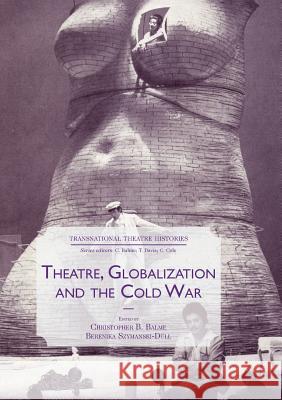Theatre, Globalization and the Cold War » książka
topmenu
Theatre, Globalization and the Cold War
ISBN-13: 9783319838953 / Angielski / Miękka / 2018 / 350 str.
Kategorie:
Kategorie BISAC:
Wydawca:
Palgrave MacMillan
Seria wydawnicza:
Język:
Angielski
ISBN-13:
9783319838953
Rok wydania:
2018
Wydanie:
Softcover Repri
Ilość stron:
350
Waga:
0.44 kg
Wymiary:
21.01 x 14.81 x 1.93
Oprawa:
Miękka
Wolumenów:
01
Dodatkowe informacje:
Wydanie ilustrowane











